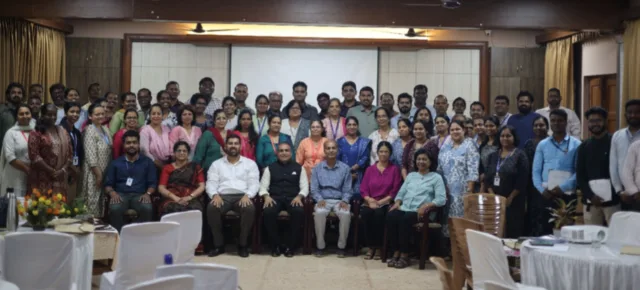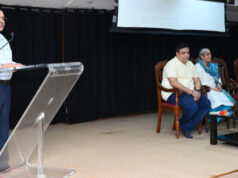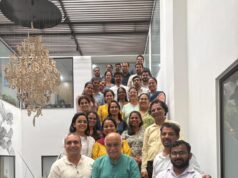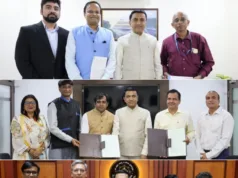Centralised Training, Internship and Placement (TIP) Cell, Directorate of Higher Education (DHE), Government of Goa, successfully organised the TIP Conclave 2025 at Fr. Agnel College of Arts & Commerce, Pilar, recently. The conclave served as a dynamic platform for industry-academia interaction and witnessed enthusiastic participation from TIP Co-ordinators and Internship Nodal Officers from 40 colleges from General, Engineering, Law, Educaton, Music, Theatre, Design, Home Science, Agriculture and more streams from across Goa.
The programme commenced with a welcome address by Fr. Fredrick Rodrigues, Principal of the host institution, who set the tone for the day by underscoring the importance of collaboration between academia and industry. This was followed by an address by Prof. Niyan Marchon, Program Director – TIP & TLET, Directorate of Higher Education, who outlined the TIP Cell’s progress and the vision for expanding student opportunities through structured internships and partnerships.
Bhushan Savoikar, Director of Higher Education, was the chief guest. He reaffirmed the Department’s commitment to strengthening skill development initiatives and institutionalising the internship ecosystem across the state.
Sandeep Shah, Director of BNI Foundation India, shared his vision for deeper collaborations with educational institutions and elaborated on BNI’s foundational philosophy of giving and mentoring. His insights offered a compelling narrative on how platforms like BNI can shape young minds and bridge gaps between entrepreneurial opportunities and academic frameworks.
A key milestone of the day was the formal release of the ‘Converge 2.0’ brochure at the hands of Bhushan Savoikar; followed by the signing of MoUs between BNI Foundation India and twelve colleges under the Directorate of Higher Education.
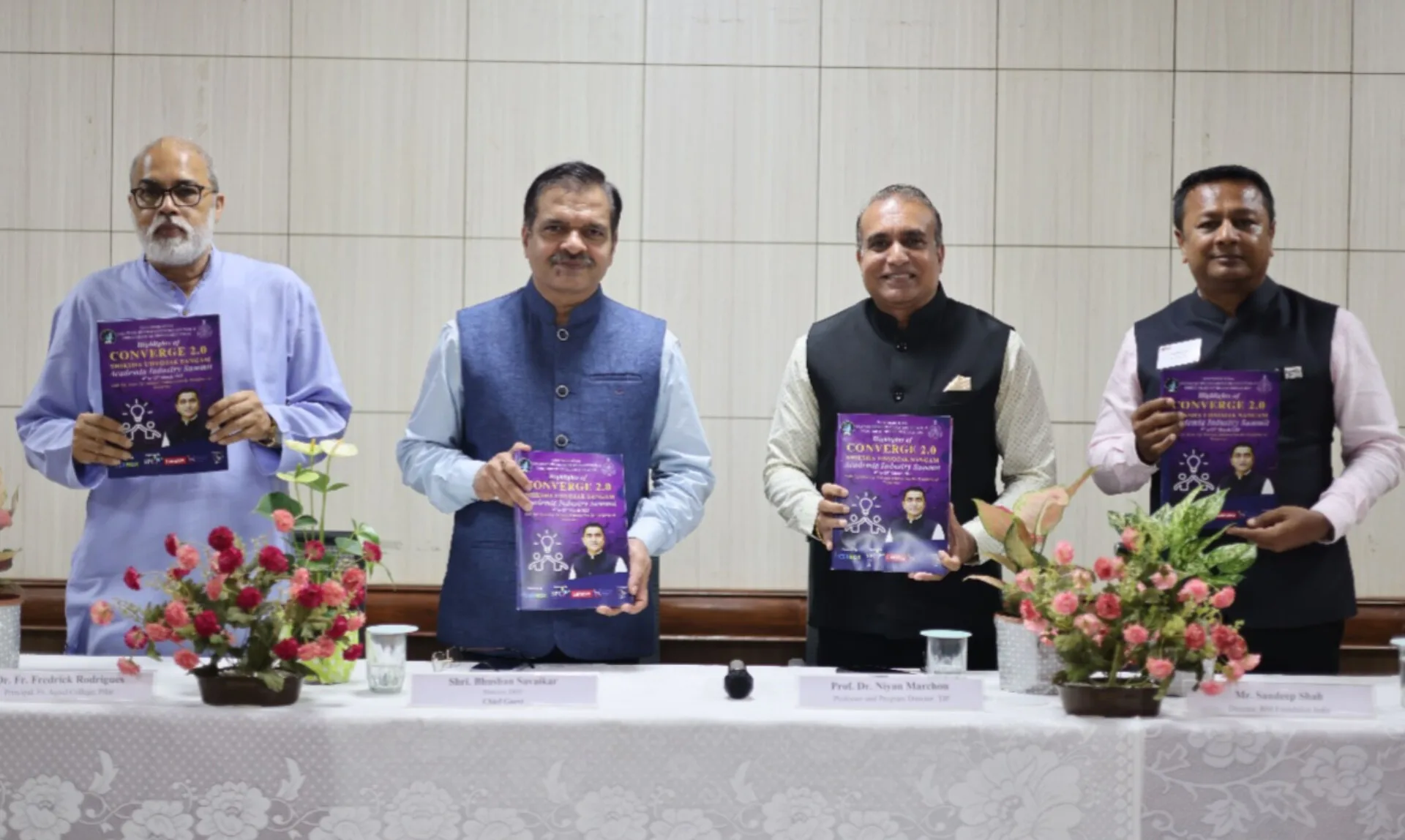
This strategic collaboration aims to create structured platforms for student mentorship, entrepreneurial guidance, and hyperlocal business networking. Building on this collaboration, other BNI representatives took the stage to share various initiatives of BNI.
Ryan Vaz, Director of Business Voices wing of BNI, spoke about the organisation’s efforts to foster local business ecosystems and the importance of hyperlocal business networking.
Anandita Chakrabarty, Secretary and Treasurer at BNI, discussed flagship programmes like the ‘Future Leaders Week’ and the ‘International Networking Week’, which aim to connect students directly with entrepreneurs through on-campus events.
Rohini Gonsalves, Vice President of BNI’s Business Voices wing, elaborated on special student-centric events such as the ‘Make a Difference Contest’, which encourages students to engage with their communities and document their impact through social media.
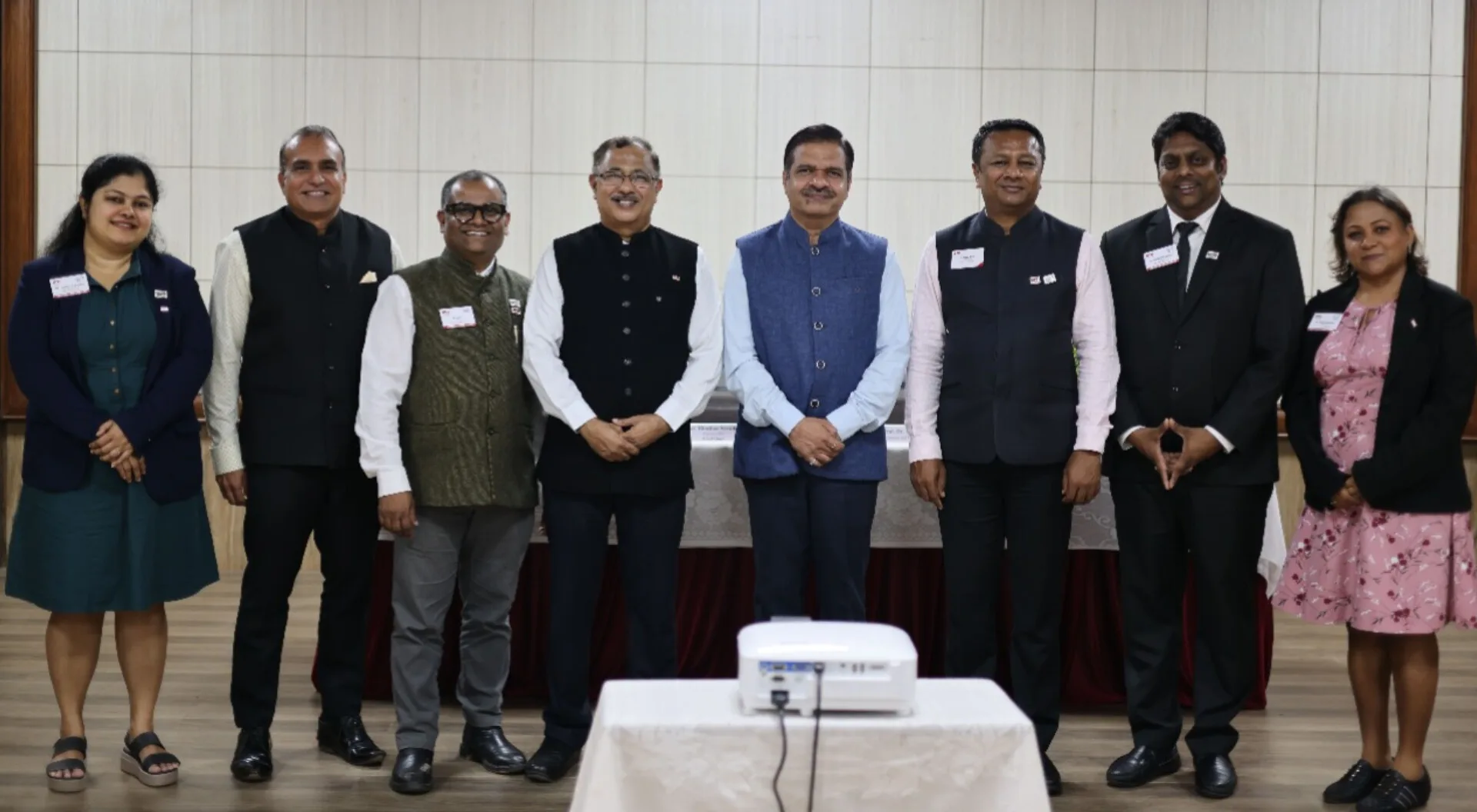
Rajkumar Kamat, Executive Director of BNI Goa, provided an overarching view of BNI’s role in mentoring aspiring student entrepreneurs and its ongoing commitment to supporting them through structured guidance and real-world exposure.
The technical sessions began with Akshay Deshpande, Head of Marketing, TCS iON Vocational Education introducing the TCS iON Career Creator Programme. He highlighted the significant gap between academic learning and industry requirements, pointing out that nearly half of new recruits are not job-ready. To address this, he explained how TCS has developed a range of free resources such as Career Edge, Jobinars, Career Insights modules, and Interest Inventory tools to help students discover suitable career paths. His session was complemented by a live demonstration of the TCS iON platform.
Dr. Abdul Razak, Faculty and In-charge of the Entrepreneurship Development Institute of India Goa Centre, delivered a session focussed on nurturing entrepreneurship within academic institutions. He introduced the Faculty Development Programme under which selected faculty members from various colleges in the state would be trained at EDII Ahmedabad. He also shared insights into the Entrepreneurship Development Programmes for colleges, which include one-day, three-day, or ten-day modules designed for student groups of at least 40 participants. Additionally, Dr. Razak briefly explained the Mukhyamantri Swayam Rozgar Yojana, a government initiative aimed at supporting youth self-employment and startup ventures.
Tanvi Shah, Manager for CSR Programmes at CSRBox, shed light on two impactful programmes that align with student skill development and employability. She elaborated on the Lenovo Leap – Next Gen Scholar Programme, which features dedicated tracks in Artificial Intelligence, Data Analytics, and Web Development.
Shah also discussed the IBM SkillsBuild initiative, which provides an additional platform for students to gain exposure to practical skills and internship opportunities.
A highly engaging session was conducted by Rohit Gupta, General Manager and Site Head (HR) at Glenmark Pharmaceuticals. Speaking on the theme “Industrial evolution with focus on Industry 4.0” he explained how cyber-physical systems are reshaping industries globally. He described the foundational technologies driving this transformation—namely, the Internet of Things (IoT), Big Data, Cloud Computing, and Automation—and reflected on both the opportunities and challenges presented by these advancements. Drawing from his own HR experience, he underscored the need for students to develop not just technical acumen but also adaptive, forward-looking mindsets to thrive in this new industrial age.
In a session dedicated to banking and financial sector opportunities, Rudolph D’Souza, Vice-President at HDFC Bank, introduced participants to the bank’s internship and recruitment initiatives. He provided a concise overview of HDFC Bank’s operations in Goa and detailed the structured internship and job opportunities available to students. The session offered insights into the bank’s recruitment pathways and was intended to inform institutional representatives about avenues that could be leveraged for student engagement with the banking sector.
Following the enriching speaker sessions, the post-lunch segment began with an orientation on the e-Samarth portal for Internships under OA-38 by Sujay Borkar from the IT Department Directorate of Higher Education. This was followed by a dynamic brainstorming session where TIP Coordinators and Internship Nodal Officers from participating colleges were divided into groups to discuss and reflect on challenges faced during Converge 2.0 held in March 2025, expectations from the upcoming Converge 3.0, difficulties in facilitating student internships, and strategies to enhance industry engagement in academic institutions. Representatives from each group presented their insights, resulting in a productive exchange of ideas aimed at actionable solutions.
Coordinators from the TIP, DHE team: Prof.(Dr.) Niyan Marchon, Dr Andrew D’Souza, Vasant Narulkar, Dev Manoj and Prashant Bhomkar.


